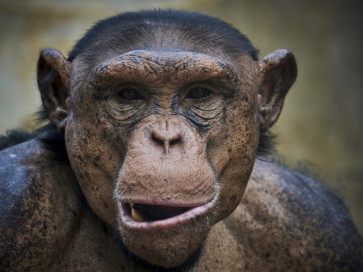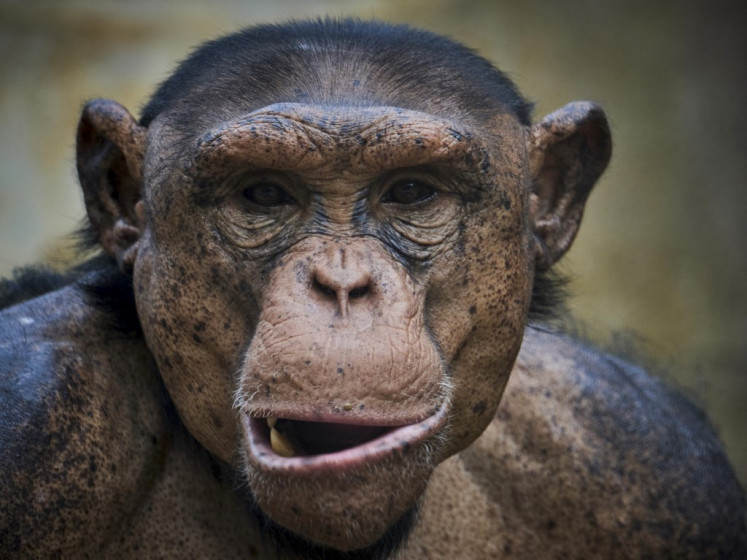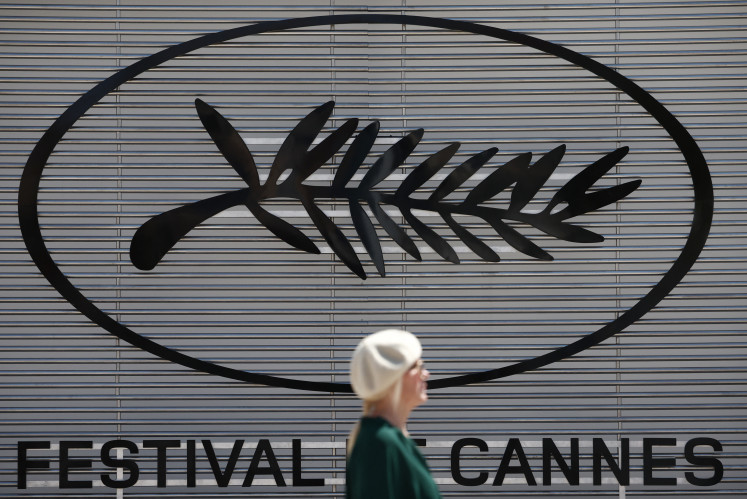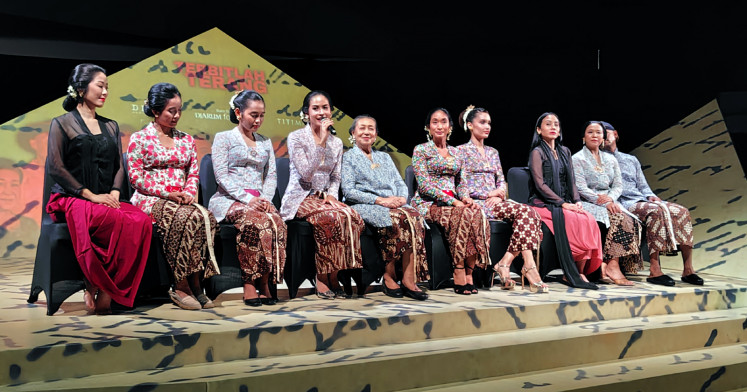For Ai Weiwei, Trump a 'brand' for global trend toward hate
Change text size
Gift Premium Articles
to Anyone
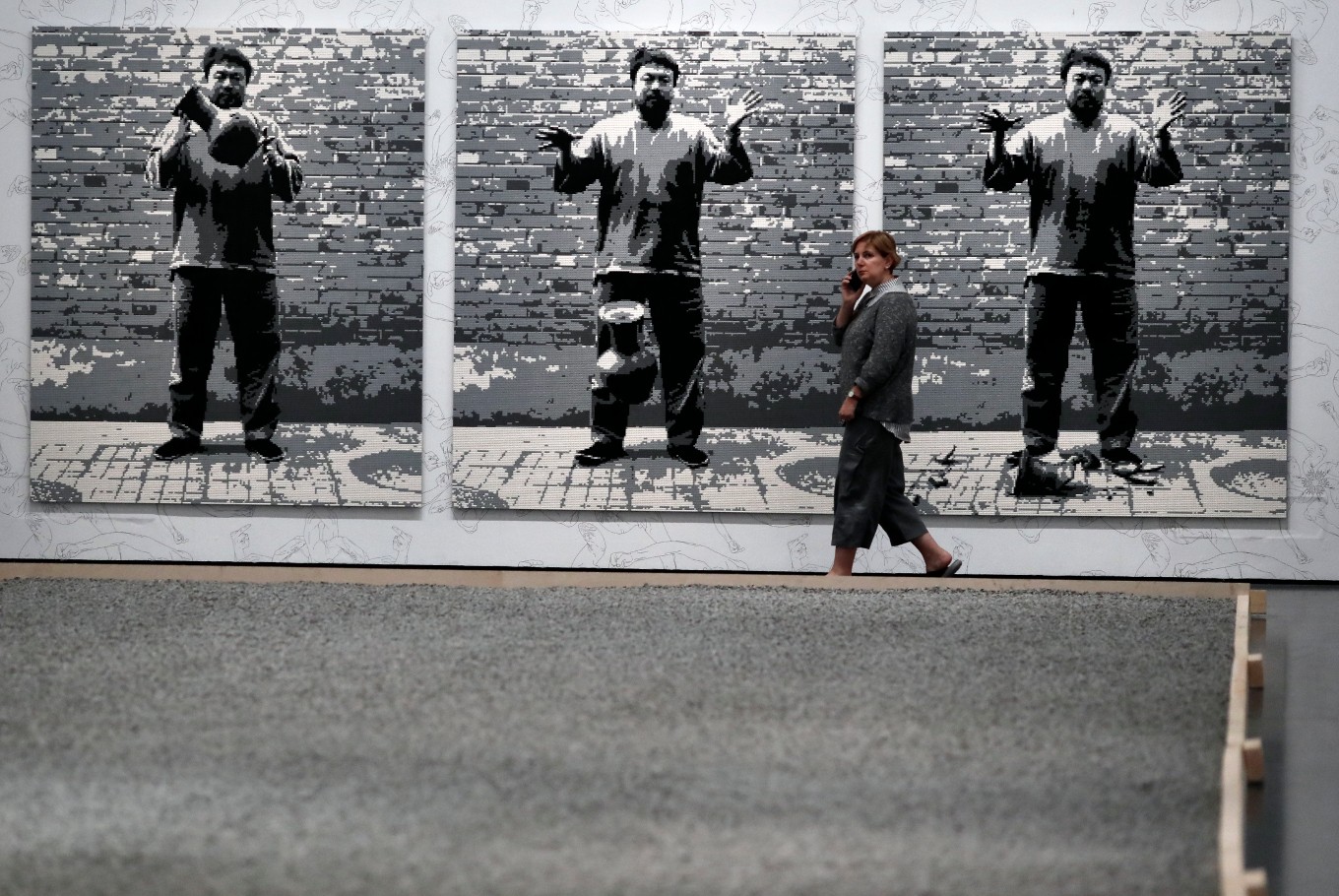 A woman walks past art work by Chinese artist Ai Weiwei titled 'Dropping a Han Dynasty Urn' (2016) which is made with Lego bricks on the eve of the opening of his new exhibition 'Maybe, Maybe Not' at the Israel Museum in Jerusalem on June 1, 2017. (AFP/Thomas Coex )
A woman walks past art work by Chinese artist Ai Weiwei titled 'Dropping a Han Dynasty Urn' (2016) which is made with Lego bricks on the eve of the opening of his new exhibition 'Maybe, Maybe Not' at the Israel Museum in Jerusalem on June 1, 2017. (AFP/Thomas Coex )
A
i Weiwei said Thursday he sees US President Donald Trump as the "brand" for a global trend toward hatred and division, as the Chinese artist prepared to open a politically charged exhibition in Jerusalem.
In an interview with AFP, Ai also expressed his passion for the cause of refugees and his criticism of his home country -- where he currently cannot return.
At the same time, he spoke of the decision artists such as himself face when deciding to exhibit or perform in Israel due to calls for a boycott over the country's occupation of Palestinian territory.
For Ai, who has visited the occupied West Bank and the Gaza Strip, where he filmed a piece included in the exhibition, being absent from the argument is not an option.
"My voice should be heard," he said at the Israel Museum in Jerusalem, where his exhibition opens to the public on Friday and will run until October 28.
"I have to make the argument ... (and not say) 'OK, let's boycott it, and it's nothing to do with me.' I think that's too easy."

The 60-year-old artist has become known globally for his politically edgy work, and his exhibition in Jerusalem taking up nearly all of the museum's third floor is no exception.
It features large-scale works such as part of his "Sunflower Seeds" installation featuring millions of seeds made from porcelain, weighing some 23 tonnes.
Wallpaper across part of the exhibition depicts the plight of refugees while mixing in classical images, giving it the look of a frieze from ancient Greece.
His "Soft Ground" installation has particular resonance for Israel.
The 250-square-metre (2,700 sq foot), hand-woven carpet carefully replicates the floor of the Haus der Kunst in Munich, where the Nazis once displayed art they deemed worthy.
The carpet took a day to bring into the museum and takes up nearly the entire floor of one hall, with visitors allowed to walk on it.
'Urgency' to respond
Ai, a stocky man with stubble on his chin and an informal demeanor, said he believes there is an "urgency" for artists such as himself to respond to the world's injustices.
Asked about Trump, who famously pledged to build a wall between the United States and Mexico and sought to bar travel to his country from a number of Muslim-majority countries, Ai said he saw him "as a brand for some kind of global trend".
"I would say rightist movement, so it's not really about him personally," he said.
Trump reflects an "old way" of thinking, "to have a hatred for the other kind of people or to divide people, rather than to really understand the whole situation," Ai said.
Ai's passion for the plight of refugees stems in part from his own experience.

Read also: ‘Ampar-Ampar Pisang’ greets Mexico with angklung performance
When he was a child, his father, poet Ai Qing, was sent to labor camps and the family stayed there for a number of years.
He recently visited a range of countries to explore issues connected to refugees and has had exhibitions featuring work on the subject.
It is an "extreme example of our human condition today," he said, standing near his "Trees" installation, featuring tree sculptures bolted together from pieces of collected wood.
"My father was exiled and I was growing up in the camps, and we faced all kind of discrimination and all kind of unfair treatment.
"So I have a natural understanding about people being seen as different, as someone else, as someone dangerous, or someone who would make the society not a safe place."
'Make some difference'
Ai has also been an outspoken critic of the Chinese government.
He was detained in 2011 for 81 days and had his passport confiscated for four years. He is now based in Berlin.
Mira Lapidot, chief curator of the fine arts wing at the Israel Museum, where Trump gave a speech last week during a visit to the region, called Ai "truly brave".

She said there was a tendency by some to see his work as simplistic since it addresses contemporary issues so directly, but such opinions failed to see the multiple layers underneath the surface.
For Ai, artists can have an important impact on the world around them -- as with any individual.
"If we don't feel that way, that's truly a disaster," he said. "We have to say every effort, every intention, every speech, would make some difference."



